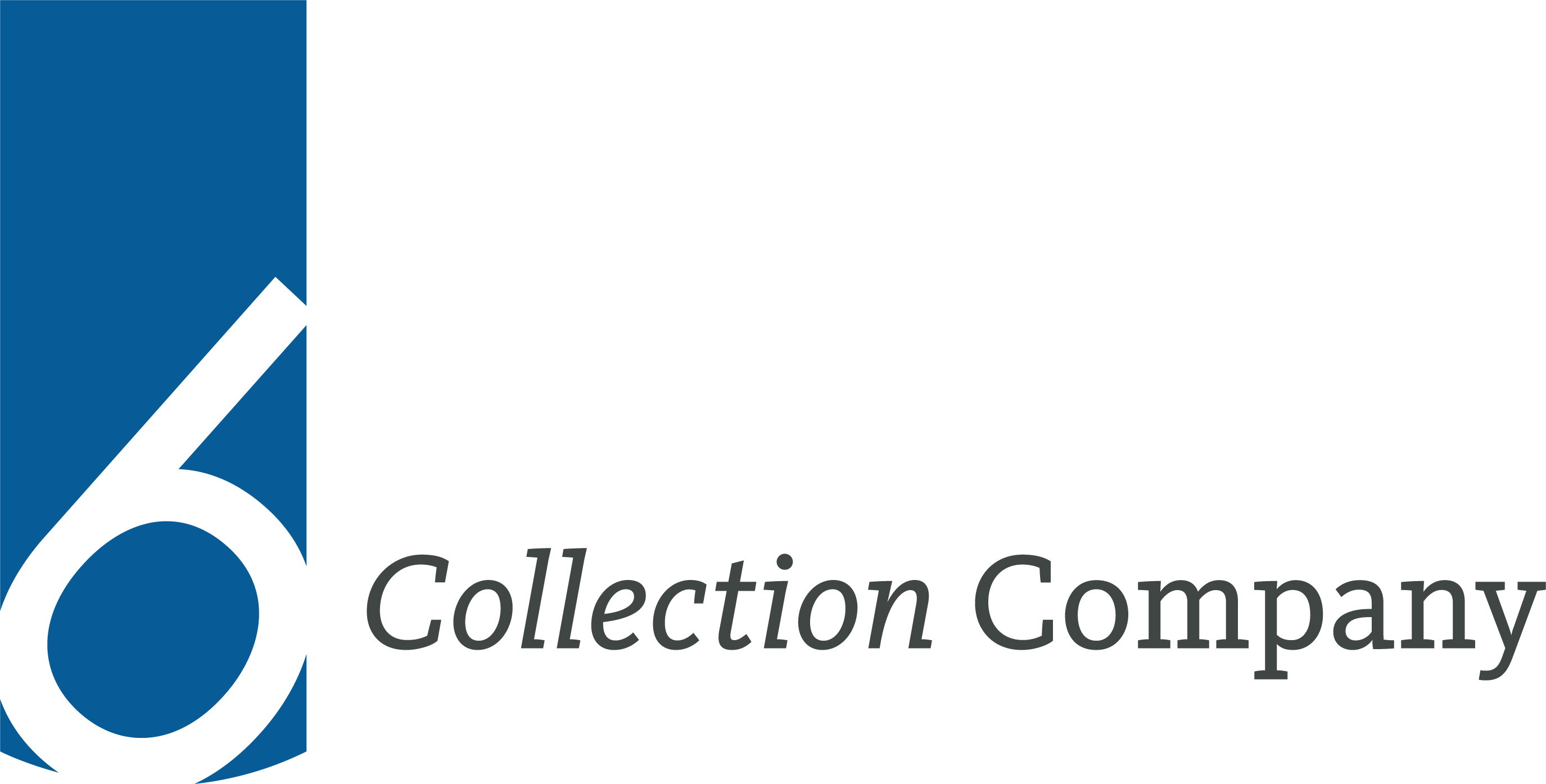Debt Collection Luxembourg: collecting your international claims
Does your business have customers in Luxembourg who are not paying their invoices? Do you want to collect other outstanding debts in the Grand Duchy? Or has your debtor fled to Luxembourg?
Collection Company specializes in international debt collection and can quickly and efficiently collect your foreign claims for you in Luxembourg. We can track down your debtor in Luxembourg and handle the entire debt recovery and enforcement process.
Transferring your claim to Collection Company gives you access to our network of the best local bailiffs and lawyers in Luxembourg. They know everything about laws and customs concerning debt collection in Luxembourg.
- Nationwide coverage in Luxembourg
- One dedicated English speaking contact
- Proven track record
- Tailor-made services for each case
- Expert advice and a transparent process
- 24/7 online access
Specialized in debt collection in Luxembourg
It’s the nightmare of entrepreneurs doing business abroad: a debtor who doesn’t pay an invoice and suddenly seems to have vanished. How do you get in touch with your customer if they suddenly stop responding? And what procedures can you follow in the event of an unpaid debt? What are the laws and customs when it comes to a defaulter? All of a sudden, you have to deal with different legislation and a different language.
Transfer your claim to Collection Company and we can make sure that the outstanding invoice is paid quickly. We specialize in international debt collection and use a local network of lawyers and bailiffs in almost every country, including Luxembourg. Together with our local partners, our debt collectors will recover your money.
As a creditor you’ll have one dedicated English speaking contact. This debt collection specialist coordinates the debt collection process. You can track the progress of the case yourself in our Online Cockpit.
Would you like to consult one of our debt collection agents about your claim? We are happy to assist you with a free and non-binding consultation.
File your claim immediately
Do you have an outstanding claim in Luxembourg? Fill in your contact details and one of our debt collection specialists will contact you to discuss your case.

Why choose Collection Company as your debt collection agency?
- Global coverage
- One dedicated English speaking contact
- Experienced debt collection specialists with knowledge of legislation in Luxembourg
- Broad network with local lawyers and bailiffs
- Seamless connection from extrajudicial to judicial action
- Effective local approach
- 24/7 tracking through your own Online Cockpit
How does debt collection in Luxembourg work?
The debt recovery process in Luxembourg can be divided into two phases: extrajudicial (amicable) and judicial.
The extrajudicial phase (amicable collection) involves all efforts to collect the debt before initiating a legal procedure. In many cases, there is no need for a judge to intervene in order to collect your outstanding invoice.
If the debt cannot be collected in the extrajudicial phase, we can proceed with a judicial procedure. Your Luxembourgish debtor will be summoned to court. The judge may order them to pay the invoice. If they fail to do so, we can initiate enforcement proceedings.
- Upload your invoice online
- We'll start your case
- We'll start with the debt collection process
- Together we decide the best strategy for collecting your debts
- Monitor the status of your case 24/7
- Any questions? Your personal accountmanager will answer them all!
- Your invoice is payed
Extrajudicial debt recovery in Luxembourg
An out-of-court debt collection is generally the most efficient and cost-effective way to collect outstanding debts. There is a high chance that your Luxembourg debtor will pay the invoice upon receiving a reminder from an international debt collection agency.
During the amicable debt collection, we send reminders and demands. We also contact the debtor personally. We do this by phone, email, SMS, or WhatsApp. In total, there are 16 points of contact within a three-week period.
During the process, we gradually increase the pressure. We inform the debtor that legal action will be taken if payment is not made within the specified time frame. We also explain to your debtor that costs will only increase if they continue to delay payment.
If the debtor still refuses to pay, we can ultimately submit a formal payment request. This is a legal final demand, which can be sent by registered mail or delivered by a bailiff. It clearly states what legal actions will be taken if the invoice is not paid within the specified time frame mentioned in the letter.
If this does not have the desired effect, we can then proceed with actual legal actions.
Judicial debt collection
If your debtor still doesn’t pay after an amicable collection process, there is no other option but to initiate legal proceedings.
In Luxembourg, there are two types of courts: the magistrate’s court (friddensgeriichter or justices de paix) and the district court (bezierksgeriichter or tribunaux d’arrondissement).
The magistrate’s court is the first level of the judicial hierarchy. This court handles small claims (up to 15,000 euros). There are three of these courts in Luxembourg: in Luxembourg City, Esch-Sur-Alzette, and Diekirch.
Claims above 15,000 euros are handled by the district courts. These courts are located in Luxembourg City and Diekirch.
Claims under 15 thousand euros
Claims up to 15 thousand euros are handled by the magistrate’s courts. The lawsuit takes place in the district of the debtor.
If you have a business agreement with the debtor, we can initiate a payment order procedure. The judge will examine the evidence and based on that, either dismiss the case or issue a payment order directly. If the judge issues a payment order, the debtor will be notified by the court. Your debtor then has 30 days to pay or object to the payment order.
If your debtor objects to the payment order, a hearing will be scheduled. Both parties will have the opportunity to substantiate their position and submit evidence. During the case, your interests will be represented by our legal experts.
After examining all the evidence, the judge will decide whether the claim is granted or dismissed. If the judge grants your claim, your debtor has 30 days to pay the outstanding amount.
If they fail to do so, we can request the judge to give the payment order an enforceable title. This means we can seize assets from your debtor based on the payment order.
Claims of more than 15 thousand euros
If you have a claim above 15,000 euros, we can choose between:
- Payment order procedure
- Summons procedure
A payment order procedure is intended for cases where the amount of the claim can be easily determined, for example, because you have a clear agreement.
The payment order procedure for claims above 15,000 euros is quite similar to that for amounts below 15,000 euros, with the main difference being that the case is heard by a higher court, the district court (bezierksgeriichter or tribunaux d’arrondissement).
A summons procedure is intended for complex cases, where the amount of the claim, for example, must be determined by the judge. Your debtor is summoned to appear before the court by means of a summons. Both parties can submit evidence and substantiate their position. Subsequently, the judge will render a judgment.
If the survival of your own business is threatened by non-payment, it is possible to request expedited proceedings. In this case, the judge will make a provisional ruling.
This ruling is called a provisional measure. With this provisional measure, we can have attachments imposed on your debtor.
Costs incurred in Luxembourg
It is not only annoying that you have to wait unnecessarily long for your money, but it also causes damage to you or your company. You can, for example, not invest the money to further develop your business, you have to incur costs to collect your claim, and you may end up having trouble paying your own bills.
Fortunately, in Luxembourg, there are several ways to recover the costs and damages you incur due to non-payment.
Business transactions
If you, as an entrepreneur, do business with other companies in Luxembourg, you are entitled to a fixed amount of 40 euros in case of late payment. This amount is intended as compensation for hiring a debt collection agency to collect the claim.
In addition, you are entitled to reasonable compensation for other costs incurred, such as lawyer and bailiff costs.
Your debtor owes you these costs if 30 days have elapsed since receipt of the invoice, unless something else is contractually agreed. If the invoice does not clearly state a date or the invoice is issued before the delivery of the goods or services, a period of 30 days after delivery applies.
Business parties are free to agree on other payment conditions prior to the agreement. However, the court can invalidate unreasonable payment conditions.
Deliveries to consumers
If your company supplies goods or services to consumers, then the consumer owes you compensation for late payment if three months have passed since the receipt of the goods, completion of work, or provision of services, and they have not paid the invoice.
The compensation is only due if an invoice is sent within one month of the delivery of the goods or services. On the invoice, you must explicitly state that you will claim the statutory compensation for late payment if payment is not made within the specified period.
European Payment Order (EPO)
It is not always necessary to initiate legal proceedings in Luxembourg. Because Luxembourg is a member of the European Union (EU), you can also request a European Payment Order if your debtor fails to pay on time.
A European Payment Order is intended for undisputed claims. These are claims where your debtor doesn’t contest the validity of the claim, but still doesn’t pay. This is the case, for example, when your debtor does not respond to your invoice or simply doesn’t pay without giving a reason.
To apply for a European Payment Order, we only need to submit a number of standard forms to the court in your own country. The judge will examine the case and issue a European Payment Order (EPO). Your debtor then has 30 days to object to the payment order.
If that does not happen, the EPO is immediately enforceable without the intervention of the court in Luxembourg. This means that we can immediately engage a bailiff to seize assets from your debtor.
As mentioned, a European Payment Order can only be issued for claims that are not disputed by the debtor. Our international collection specialists can tell you whether your claim qualifies for a European Payment Order.
European Small Claims Procedure
Just like the European Payment Order, the European Small Claims Procedure (ESCP) is a process aimed at facilitating the collection of cross-border claims in Europe. We can use the European Small Claims Procedure for all claims up to 5,000 euros.
The major advantage of this process is that it is entirely digital and takes place through the court in the country you reside. We submit your claim to the court, which informs your debtor. Both parties can then submit their evidence online. If necessary, the court arranges a hearing (by a video call).
Ultimately, the court makes a ruling. This ruling is recognized throughout the EU (except in Denmark). Based on this, we can engage a bailiff and seize assets from your debtor in Luxembourg.
How does the debt collection process work in Luxembourg?
Step 1
We start with an amicable debt collection process. We’ll send payment reminders to your debtor and contact them 16 times over a period of three weeks.
Step 2
If your debtor still doesn’t pay after this, we will send an official demand letter. In this letter, we will inform your debtor that we will take legal action if the owed amount is not received by the mentioned date in the letter. We will make clear that they are responsible for the costs of the legal procedure.
Step 3
If your debtor still refuses to pay, we will actually file a lawsuit (in consultation with you as the creditor). Once we have a judgment from the court in Luxembourg (or a European Payment Order), we can hire a bailiff to enforce the judgment.
Interim measures in Luxembourg
If you initiate legal proceedings and your debtor realizes that the judge will rule against him, he has the opportunity to quickly conceal his assets. This way, he can prevent you from collecting the claims by the time the judge ruled a decision.
To prevent this, we can request an interim attachment. Prior to summoning your debtor to court, we ask the judge for permission to temporarily seize assets, so that the debtor has no chance to sell or hide belongings or money. In such a procedure, your debtor is not heard or informed by the judge (this is also known as ex parte).
To obtain a preliminary attachment, we will need to demonstrate that your claim has a good chance of success and that there is an urgent need to take precautionary measures.
Enforcement proceedings
Once we have obtained a judgment from the court in Luxembourg (or a European Payment Order), and your debtor fails to comply with the court’s decision, we can enforce the judgment. For this, we need to engage a bailiff.
We first need to apply for an enforceable title at the court. This will be sent to the bailiff, who can then proceed with the seizure of assets of your defaulter. The bailiff can seize goods and financial resources of your debtor. Items can be sold through a public auction, and you as the creditor will be paid from the proceeds.
Collection Company works with the top bailiff offices in Luxembourg for the enforcement of judgments.
Bankruptcy procedures in Luxembourg
If your debtor doesn’t pay an invoice, we also have the option to file for their bankruptcy. This is, for example, an option if your debtor claims that they cannot pay the bill.
Most debtors will do everything they can to prevent bankruptcy and still pay the invoice once a petition for bankruptcy is filed.
To petition for bankruptcy, we simply need to show that your debtor has stopped paying. An unpaid bill with an expired payment term is generally sufficient for this.
We must file the bankruptcy application with the district court in Luxembourg. The bankruptcy application must then be handed over to your debtor by a bailiff.
If your debtor subsequently pays the invoice, we can stop the bankruptcy proceedings.
Advice about your case?
Submit your contact details and one of our debt collection specialists will contact you immediately!

Legal areas of debt collection in Luxembourg
We handle debt collection for claims in various legal areas. We not only collect unpaid invoices from business customers, but we can also collect claims about rental or purchase disputes and damage claims.
We can assist you with claims in the following legal areas:
- Construction Law
- Renting and leasing
- Buying and selling
- Labor Law
- Agency Agreement
- Transportation
- Damages and wrongful acts
We work not only for clients directly but also for intermediaries (such as law firms and accounting firms).
Anything else we can help you with in Luxembourg?
- Reliable advice on contracts and terms
- Credit information on companies in Luxembourg
- Disputes regarding retention of title and right of reclamation
- Mediation in reaching private agreements and settlements
Start your debt recovery in Luxembourg today
Fill out our debt collection registration form to submit your claim immediately. Prefer to consult with an expert about your debt collection case first? Give us a call at 070 – 762 0330 or send us an email.
Free advice on debt collection in Luxembourg?
Submit your contact details and one of our debt collection specialists will contact you immediately!

FAQ: Frequently Asked Questions about debt collection in Luxembourg
FAQ: What do we need to collect your debt in Luxembourg?
To collect your debt for you, we kindly request as many supporting documents as possible. These could include contracts, agreements, invoices, statements, and credit notes.
We understand that you may not always have all the necessary documents. If certain papers are missing, it’s not a problem. Together with our debt collection specialist, you can determine which evidence you have to substantiate your claim.
If available, please provide the following documents:
- Copies of agreements made, such as a purchase agreement, email correspondence, a fax confirmation, or simply a summary of what has been agreed
- (Copies of) your invoices
- (Copies of) your reminders
- Your terms and conditions
- Proof of delivery
FAQ: Do you need a lawyer for debt collection in Luxembourg?
For most debt collection procedures in Luxembourg, a lawyer is not required but allowed. For example, you do not need a lawyer to apply for a payment order or file for bankruptcy.
Depending on the complexity of your claim, we can get assistance from a lawyer. Collection Company works with the best lawyers in Luxembourg. They are ready to assist you when your case requires it.
FAQ: Which language is used in the court in Luxembourg?
Luxembourg has three official languages: Luxembourgish, French, and German. A lawsuit can be conducted in any of these three languages. In practice, French is the most commonly used language. Legal documents are generally drafted in French.
By the way, lawyers in Luxembourg must be proficient in all three languages. If necessary, Collection Company can engage a Luxembourgish lawyer.
FAQ: Why not hire a debt collection agency in Luxembourg?
Collection Company takes care of the entire debt collection process, from the amicable phase to the legal procedure and recovery. As a client, you have one dedicated English speaking contact with whom you communicate and who coordinates the case. You can track the progress in our dedicated online cockpit.
Therefore, you don’t have to search for bailiffs and lawyers in Luxembourg yourself. This way, you also don’t have to deal with a different language. Simply transfer your claim to us, and we will take care of the rest.
Why 40.000 customers tried our services
- The #1 collection company in the Netherlands and abroad
- Regional & local specialists
- Years of experience with international invoices
- Your own personal contact
- Extensive advice on the legal process
- Monitor the status of your case 24/7

Meet our specialized legal team
- Joost Konings LLMLaw expert
- May Leung LLMLaw expert
- Wesley Boeters LLMInterim lawyer




